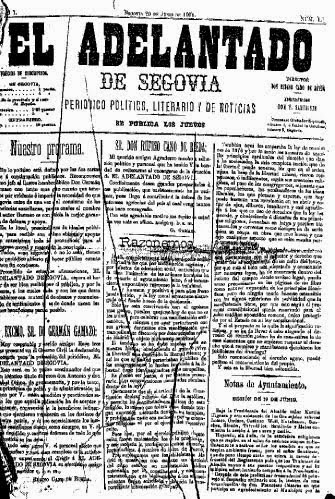 |
| "Boot und Transportfuhrwerk im winterlichen Galizien" (1914-1918) By the K.u.k. Kriegspressequartier, Lichtbildstelle - Wien In the Austrian National Library via Wikimedia Commons |
IN THE MID-1920s, in a Europe that was as battered as ever by the First World War, Joseph Roth (who later wrote The Radetzky March) was earning his bread as a foreign correspondent for German newspapers. One such periodical was the Frankfurter Zeitung, mouthpiece for leftist circles in the Weimar Republic that was later shut down by the Nazis, only to resurrect itself after the Second World War as the Frankfurter Allgemeine Zeitung. Roth himself was far to the left, inclined to socialism, and he took the pen name 'Red Joseph' for the purposes of his political journalism. Also, his views and position in Weimar Germany were determined by other elements: he was a Jewish native of Galicia, now Poland, who had served (after years of reluctance) in the imperial army on the German side, and who indulged in an odd allegiance to the abolished monarchy, which he celebrated in part of his work.
His newspaper assignment was to travel in Poland, in Ukraine, and in a Russia that had been living under a Leninist system since 1917. (Later he would travel to Albania, Yugoslavia, the Saar region of Germany that had rejoined the country by referendum, Poland, and Italy.) Vladimir Lenin himself had just died in 1924. And Joseph Roth's perspective was, of course, directed by his life experiences. He had no prejudices against the coexistence of the plethora of European minorities. These were intended, per the ideals of the League of Nations, to form their own states by virtue of the ideal of self-determination, but they lived too intertwined with each other for it to be simple to draw a border map humanely. In that respect there is no warning in his writings of the German nationalism that already existed at the time, and certainly not of the Nazism. His stance toward the Russian government was staunchly optimistic, at first, and he was looking forward to seeing Leninist solutions to widespread problems of undereducation, poverty, sickness, and lack of dignity for the poor in a classist society. He also tinges his reporting with his strong adherence to religion.
He took a long time to send dispatches back, because he kept gathering more and more material before he put his pen to paper. I believe that one can easily notice from the quality and nature of his writing when the well of inspiration was overflowing and when it ran almost dry.* He also had a magisterial way of writing — he never mentions specific interviewees or quotes anybody, it seems; everything is noted from an infinite upwelling of knowledge, except where it throws a tangent into his intermittent analysis. In the course of his travels, he was assailed not by his surprisingly complacent interlocutors (they did not seem to be holding onto the grievances of the war, although it was uncanny for him to revisit some places where he had once been the invader), but by pests like bedbugs. Aside from physical afflictions like these, there is a peculiar untouchability in his reporter's persona, as if he were a sleepwalker through Galicia and the Soviet Union.
But he ended his travels by thinking that his socialist ideas were not being realized in every respect, and his optimism crashes every now and then in the reports. He also found, everywhere, the detritus of the war.
***
Excerpts from his reporting in Poland:
"Lemberg, die Stadt."
Es ist eine große Vermessenheit, Städte beschreiben zu wollen. [. . .] Städte verbergen viel und offenbaren viel, jede ist eine Einheit, jede eine Vielheit, jede hat mehr Zeit, als ein Berichterstatter, als ein Mensch, als eine Gruppe, als eine Nation.and
Nationale und sprachliche Einheitlichkeit kann eine Stärke sein, nationale und sprachliche Vielfältigkeit ist es immer.(November 22, 1924)
***
"Die Krüppel."
In Lemberg wurde der berühmte polnische Invalide begraben, über dessen demonstrativen, heroischen Selbstmord alle Zeitungen der Welt berichtet hatten. Dieser Invalide sprach in einer Versammlung seiner Kameraden über die gemeinsame Not, schloß mit einem Hochruf auf die polnische Republik und schoß sich eine Kugel durch den Kopf.*
Wir haben Massengräber gesehen, verschimmelte Hände, ragend aus zugeschütteten Gruben, Oberschenkel an Drahtverhauen und abgetrennte Schädeldecken neben Latrinen. Wer aber weiß, wie Ruinen aussehen, die sich bewegen[. . .]? Wer hat schon gehende Krankenhäuser gesehen, eine Völkerwanderung der Stümpfe, eine Prozession der Überreste?
So war dieser Leichenzug.
 |
| "Karl I. in Galizien während der Gegenoffensive, die von Mitte Juli 1917 bis Anfang August andauerte. Hier trifft er am 22. Juli in Busk ein. Gemeinsam mit dem Generalobersten Böhm Ermolli schreitet Karl das Ehrenspalier ab" (~ King Karl I in Galicia during the counteroffensive, which lasted from mid-July 1917 to the beginning of August. Here he arrives on July 22nd in Busk. With Colonel-General Böhm Ermolli, he paces down the honour guard.) By the K.u.k. Kriegspressequartier, Lichtbildstelle - Wien In the Austrian National Library via Wikimedia Commons |
*
[. . .] und über dem Leichenzug, knapp vor dem Knaben im weißen Hemd, der das mattschimmernde Metallkreuz trug, segelte eine dunkelblaue Wolke, zackig, wuchtig und schwer, und streckte vorne einen Zipfel aus, wie einen zerfetzten Zeigefinger, um den Krüppeln den Weg nach dem Friedhof zu weisen.(November 23, 1924)
***
 |
| St. Zitakapelle in Dobrowlany, Galizien (1917) By the K.u.k. Kriegspressequartier, Lichtbildstelle - Wien In the Austrian National Library via Wikimedia Commons |
***
Translations (amateurish, with help from Google Translate):
Lemberg [Lviv], the City
It is a great presumptuousness to want to portray a city. [. . .] Cities reveal much and conceal much, each is a unity, each is a plurality, each has more time than a reporter, than a human being, than a group, than a nation.
National and linguistic unity may be a strength; national and linguistic diversity is always one.
The Cripples
In Lemberg was buried the famous Polish invalid of whose demonstrative and heroic suicide all the newspapers in the world had reported. This invalid spoke in an assembly of his comrades about their common need, ended with a paean to the Polish republic, and shot a bullet through his brain.
We have seen mass graves, moldy hands, stretching out of filled-in pits, thighs on wire barriers and severed skulls beside latrines. But who knows what ruins look like that move? Who has seen walking hospitals before, a mass migration of stumps, a parade of remains?
This funeral procession was that.
And above the funeral procession, barely in advance of the lad in a white shirt who bore the dimly shining metal cross, sailed a dark blue cloud, ragged, massive and heavy, and stretched in front of itself a tip like a torn forefinger, to point the cripples along the way to the cemetery.
***
Sources:
Reisen in die Ukraine und nach Russland, by Joseph Roth. Jan Bürger, ed. Munich: C.H. Beck, 2015
Joseph Roth (Wikipedia - English)
Frankfurter Zeitung (Wikipedia - English)
Joseph Roth (Wikipedia - German)
* After rereading Jan Bürger's afterword in the edition that I have, it strikes me that perhaps I am misinterpreting. Roth apparently rarely thought he was out of material or inspiration:
"1926 gestand er den Redakteuren der Frankfurter Zeitung fast zwei Monate nach Ankunft in der Sowjetunion, dass er bis dahin noch gar nichts habe schreiben können. Dies habe mit der Überfülle und Intensität der neuen Eindrücke zu tun."


